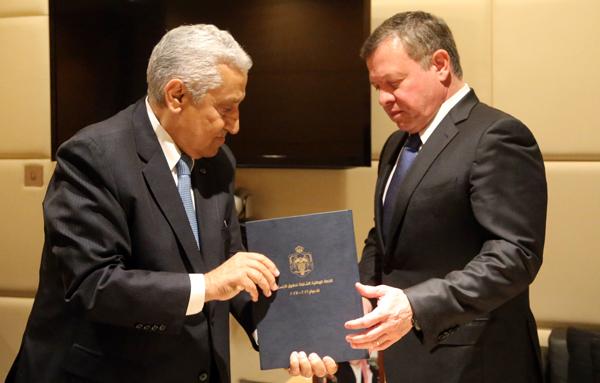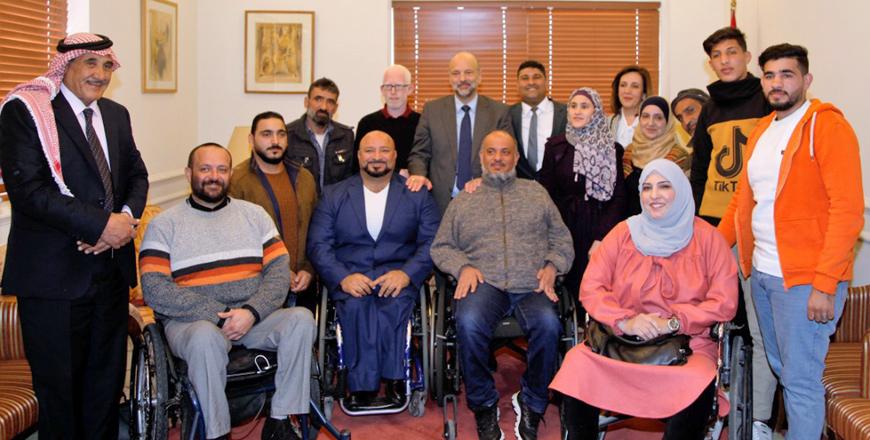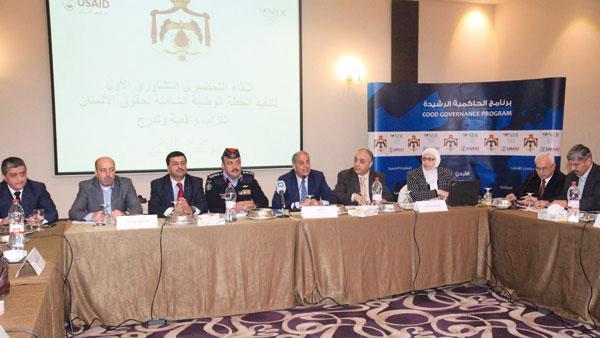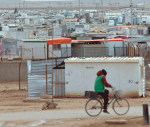You are here
King urges full implementation of human rights plan
By JT - Mar 09,2016 - Last updated at Mar 09,2016

His Majesty King Abdullah receives a copy of a plan to enhance the human rights situation in Jordan, delivered by Prime Minister Abdullah Ensour, on Wednesday (Photo courtesy of Royal Court)
AMMAN — His Majesty King Abdullah on Wednesday expressed keenness to protect and enhance human rights in Jordan, highlighting the importance of cooperation between the government and other stakeholders towards that end.
Receiving the 2016-2025 Comprehensive National Plan on Human Rights from Prime Minister Abdullah Ensour, the King stressed the significance of implementing the plan according to the set timeline, a Royal Court statement said.
His Majesty pointed out that the plan and its objectives are part of the national comprehensive reform process, urging those in charge of implementation to build on previous achievements in terms of citizen empowerment and safeguarding public rights and freedoms.
Royal Court Chief Fayez Tarawneh, King's Office Director Jafar Hassan, Interior Minister Salameh Hammad and Justice Minister Bassam Talhouni attended the meeting.
After the meeting, Talhouni — who is also head of the higher committee entrusted with preparing the plan — told the Jordan News Agency, Petra, that the plan is a comprehensive strategy that addresses the main aspects related to human rights.
The plan covers civil, political, economic and cultural rights in addition to the rights of the vulnerable such as the elderly, children and women, the minister added.
The fundamental aspects of the project are based on the Jordanian Constitution and international covenants the Kingdom has entered regarding human rights, as well as remarks presented by the National Centre for Human Rights (NCHR), Talhouni told Petra.
The plan has primary and secondary goals whose achievement will be measured through a set of activities and indicators, he said, adding that the committee will be reviewing the strategy on a regular basis.
The government — which drafted the plan in cooperation with the NCHR, civil society institutions and professional associations — will implement it through its concerned departments and civil society institutions, Talhouni told Petra.
He also underlined the appointment of 98 liaison officers in relevant institutions and public departments, in addition to establishing a specialised unit run by a government general coordinator, which is tasked, along with the Justice Ministry, with overseeing the plan’s implementation.
Related Articles
AMMAN — Deputising for Prime Minister Omar Razzaz, Minister of Political and Parliamentary Affairs Musa Maaytah on Tuesday affirmed the gove
AMMAN — Local and international organisations on Saturday met with government officials to discuss a two-year comprehensive national plan on
AMMAN — The National Centre for Human Rights (NCHR) on Wednesday published its 2022 annual report on the human rights situation.The centre h

















